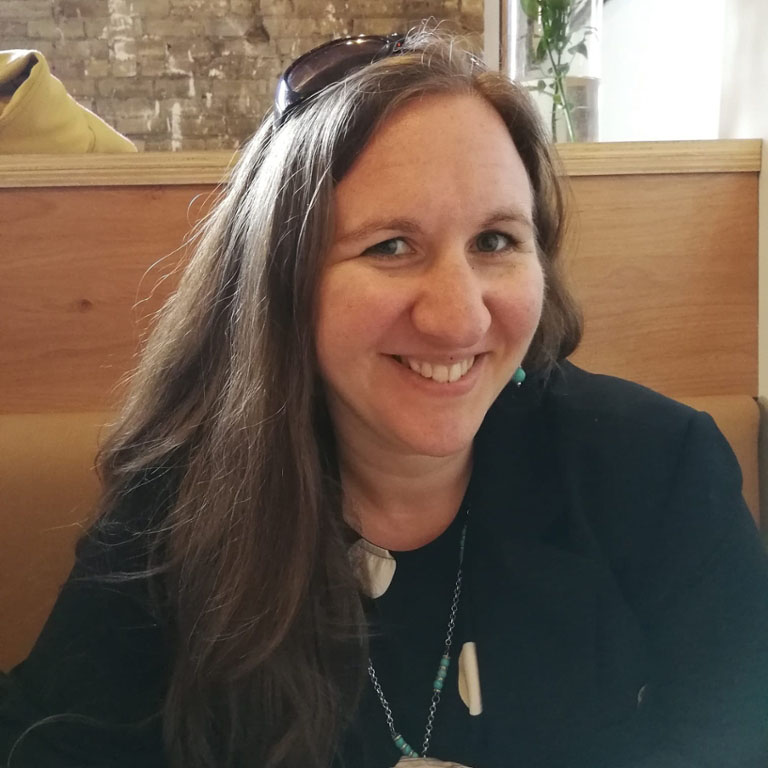April 20, 2020
When Elisheva Cohen came to the Center for the Study of Global Change at IU Bloomington as a postdoctoral fellow in May 2019, she could not have known how relevant her new Ph.D. would be just a few months later.
Cohen’s area of expertise is "education in emergencies," meaning how education is provided during periods of conflict, natural disaster, and other crises – such as a global pandemic.
Having studied refugee education in Jordan and education for girls in Afghanistan, Cohen is accustomed to tracking global education activity. In early March, she noticed a UNESCO website tracking international school closures and grew concerned.
"I was worried about how all the school closures would impact children and families around the world," said Cohen, "and I was also having a hard time with all the coronavirus-related news. When it became clear U.S. schools would be closing, too, I realized some research would be useful, and it would help channel my anxiety about the growing pandemic, too."
Since late March, Cohen and Laura Wangsness Willemsen, a professor of education at Concordia University in Minnesota, have been studying U.S. elementary schoolteachers’ experiences of and perspectives on teaching during the COVID-19 pandemic.
They recruited a small group of teachers and administrators from a suburban public-school district in Minnesota and began gathering information through Zoom interviews just as the teachers were moving into their first week of distance learning. The first set of interviews was completed in early April, with four more rounds of interviews planned by the start of the academic year in Fall 2020.
The goal, Cohen said, is to delve in to the experiences of teachers and the challenges they face.
"We want to look beyond the logistics of distance learning to better understand what it means to teach during a pandemic," she said.
Based on one set of interviews, preliminary findings from the study provide some key insights into elementary schoolteachers' needs to provide, and receive, support. The findings include:
- Teachers are worried about the social and emotional well-being of their students and how best to provide support for their well-being.
In the first round of interviews, almost all the teachers expressed this concern, according to Cohen. "One participant said succinctly, 'I know not every child is sheltering in a loving home'" she said. "Teachers are concerned about the safety of many of their students and about providing them with some semblance of normalcy. At the district level, teachers were instructed to include a social-emotional learning component every day, which I think points to a general concern."
- Messaging from school and district administrators is critical, especially for teachers with young children who are stressed about providing quality education to their students as well as their own children.
Cohen noted that as teachers moved their instruction online, they felt pressure to create meaningful learning experiences for their students while also balancing personal challenges while sheltering at home. Support expressed by leadership made a big difference.
"Some teachers felt administrators were holding them to unreasonable expectations, not accounting for the realities of teaching from home, especially with young children," Cohen said. "Others felt more of a sense of calm because they had support from administration and leeway to be flexible."
"Empathetic and compassionate communication from administration about expectations is important. When teachers feel recognized by administrators and are given some flexibility, they will rise to the occasion and, as one teacher told me, supersede it."
- There is a "silver lining" to the abrupt shift to distance learning, as teachers and school leaders are already seeing opportunities for new educational practices emerge.
Despite the disruption and stress of teaching remotely, the teachers interviewed noted positive impacts as well, according to the study.
"In the face of teaching in this emergency, teachers are reimagining and recreating curricula and pedagogy," Cohen said. "One teacher noted how much more collaborative her teaching has become. A school leader was encouraging rethinking of assessment and what it might look like in the future."
Overall, Cohen's and Willemsen's study so far underscores the critical work of providing support to teachers in three particular areas: professional development; emotional health and well-being; and sick leave.
"Teachers told us they need help to better navigate this new distance-learning pedagogy; they need appreciation and respect from administrators; and they need to know that if they fall ill, they will be able to care for themselves without risking their livelihoods," Cohen said.
"With these kinds of support, we believe teachers will be able to provide the best education and care for their students during the pandemic and may be able to 'build back better' for the future."



